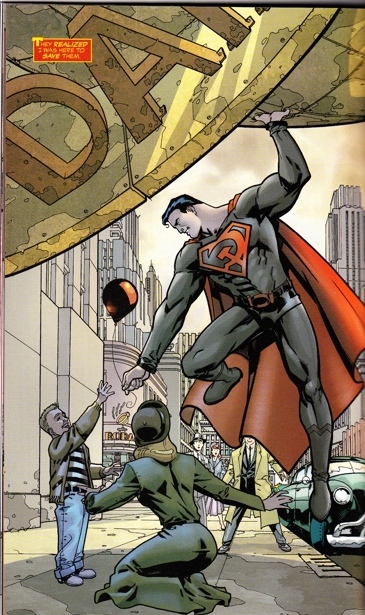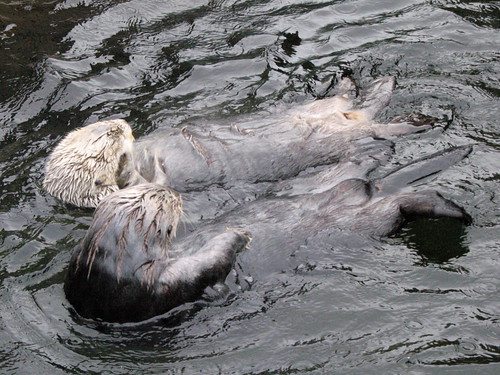Look! Up in the sky! It’s a bird! It’s a plane! It’s Superman!
Superman: strange visitor from another world! Who can change the course of mighty rivers, bend steel in his bare hands…
And who, as the champion of the common worker, fights a never-ending battle for Stalin, socialism and the international expansion of the Warsaw Pact.
What if?
What if Superman’s ship did not land in Kansas? What if, instead of the heartland of America, it landed in the heartland of… the Ukraine? What if this Superman was raised to fight for truth, justice, and the Soviet way?
Look! Up in the sky! It’s a bird! It’s a plane! It’s Superman!
Superman: strange visitor from another world! Who can change the course of mighty rivers, bend steel in his bare hands…
And who, as the champion of the common worker, fights a never-ending battle for Stalin, socialism and the international expansion of the Warsaw Pact.
What if?
What if Superman’s ship did not land in Kansas? What if, instead of the heartland of America, it landed in the heartland of… the Ukraine? What if this Superman was raised to fight for truth, justice, and the Soviet way? This is the premise of Superman: Red Son, an 3-part DC Elseworlds miniseries published in 2003, and now conveniently collected in graphic novel form. I’d been hearing a lot of positive things about it for a while, but never got around to buying it until now.
In the interest of full disclosure, here’s another detail: Red Son was written by Mark Millar. Three years ago I wrote that he was the one who killed Northstar. Northstar got better, but I never forgot that first impression. A little later, I read the first storyline he did for The Authority (“The Nativity,” issues #13–16). You’ll have to wait for another post to get the full details, but let’s just say that I was not impressed. Bottom line, I came into this miniseries with a very low opinion of the author. So it’s possible this review is not 100% objective.
It’s the art that really grabbed me, not so much the story. Specifically, the colours. The first issue had a very limited and subdued palette: Supe’s costume is grey and dark red, with a black-and-red hammer-and-sickle where the bright yellow “S” should be. In fact, most of that issue is grey and red: the grey of clouds, concrete and black-and-white TV; the red of fire, blood and Soviet flags. I have to say, it made for a neat effect. The only breaks were the eerie green of Luthor’s lab, and Lois’ bright lavender dress upon her meeting with the Comrade of Steel. The second and third issues lightened up colour-wise, which I think is a shame since the story itself got darker and darker. But, there you go: different artists have different styles and I won’t quibble too much.
This being an Elseworlds there are plenty of references, both serious and sly, to established continuity. My favourite would be the full-page shot of Superman holding up the Daily Planet globe, a perfect call-back to the cover of Superman #1.

Batman’s “Bat-signal” is a clever take on the original, being a deliberately rough graffiti to mar Supe’s pristine tyranny. Stalingrad in a bottle? Sure, why not. And I got a chuckle at the name of the famous American defector: Thaddeus Sivana (misspelled in this comic). Heh. At least we didn’t get Mr. Mind. On the downside, we didn’t get any insight into these alternate characters. Lois pines for Superman, despite only having seen him in the flesh for a moment. Lex Luthor is an astoundingly brilliant scientist, learning Urdu and playing six games of chess at once on his coffee breaks. Wonder Woman and Themyscira are… pretty unchanged. The Man of Steel himself is still an eternally compassionate boyscout, taking over the Soviet Union after Stalin’s death and turning it into an efficient totalitarian utopia because he wants to help people. Batman is still a ruthless vigilante, the only difference being that he’s head of a terrorist conspiracy against Superman’s rule.
But I didn’t see anything new or really insightful in these adaptations, even the twist of Lois being married to Lex. Frankly, I feel that kind of Elseworlds has been done to death, and Millar isn’t the first person to ask what would happen if Superman really tried to rule the world. (For one thing, he’d be wearing a Pope hat.)
All these nods and references (inspired or not) are perfectly acceptable in an alternate-universe story. But there was one line that made me go “Oh no he di-in’t!” Early in issue #1, Superman narrates:
I had made quite an impression in the fourteen weeks since I’d made my journey from the farm lands to Moscow.
Some still thought me a trick of the light or an urban myth, but each new day saw another super-feat or some death-defying rescue.
What’s so special about this line? It’s not original to Millar, nor does it come from the Superman œuvre as far as I know. It comes courtesy of Warren Ellis to describe John Cumberland, a.k.a. “The High,” the Wildstorm universe’s answer to Superman. From Stormwatch #48 (May 1997):
We call this man The High.
His first recorded activities were in the year 1938. He visited beatings upon corrupt landlords, nazi bunds, munitions tycoons; political acts. Quietly averted a few natural disasters. But there was never solid proof of his existence. He was dismissed as an urban myth.
And from Planetary #5 (September 1999):
John Cumberland, my God… There was brave man. Most people thought him a myth, or a trick of the light…
And Millar must know about Ellis’ work, since he took over The Authority from him. So… far be it from me to accuse anyone of plagiarism, but it definitely soured my reading of Red Son. Though if anyone can offer evidence that the “trick of the light” line is actually part of the Superman myth, I will stand corrected.
One other thing that turned me off is Millar’s lack of affection for the source material. Consider the opening quote of this post, part of a Communist propaganda film. That was actually taken pretty much word for word (except for the last part, obviously) from the awesome 1940’s Superman animated shorts and other classic sources. Which is cool. What’s less cool is Millar having Perry White commenting, “Aw, gimme a break. Who writes this stuff?” Look, we know Golden Age comics were cheesy and goofy as hell. That’s why we love them. There’s no need to make these little comments that I guess try for “ironic” but land on “obnoxious.” Also “hypocritical,” since he makes a living writing for the funny-books, though I guess it’s okay if he makes them all dark and bloody and junk.
And there were other parts that didn’t piss me off so much as… make me shake my head. Sloppy writing that should have been caught by an editor. When Superman leaves his own party, he finds the drunk and suicidal Pyotr two hundred miles away. But suddenly he hears people shouting for help in Moscow “two miles away”? Sivana’s name spelled with an extra “n”? The Moscow subway sign spelled in English but with a backward “S”? Then you’ve got Supe’s inner monologue, as he prevents Sputnik from crashing into Metropolis.
Sputnik Two weighed five thousand pounds. That mass multiplied by an acceleration factor of a hundred meters per second would have delivered a force powerful enough to level the entire city.
Okay, time for a refresher physics course: a hundred meters per second is a measure of speed, not acceleration. And energy (not force), is a function of mass multiplied by speed squared. Also, Sputnik-2 weighed a little over 500kg, or about 1,100 pounds. Seriously, Millar, two minutes with Google.
I won’t get into the various plot points that came out of nowhere, and especially not the ending, because that was just… weird, and came out of fucking left field. Krypton is future Earth? Meh, I dunno.
Bottom line: I did enjoy this graphic novel. True, it didn’t make me think much, and didn’t improve my opinion of Mark Millar. I don’t think it deserves the breathless praise everybody seems to be heaping on it, but hey: it was fun, occasionally clever, and had lots of nice visuals and cool fight scenes. Bring the popcorn, stay for the art.









